There’s always a moment in every ultramarathon I run, Beacons Way 100 Mile, Ultra Scotland, Ultra Trail Snowdonia, The Race Across Scotland, when the sun drops behind the mountains, and the world in front of me reduces to the small globe of my headlamp and the deafening silence with nothing but the sound of my own steps for company. The support fades, the trails grow quiet, and suddenly it’s just me, the trail, and the dark. Night running will challenge you.
These dark miles will test you in ways daylight doesn’t. They force you to trust your preparation, your gear, and your own mind. Over the course of my ultrarunning journey, I’ve gathered lessons. Some were hard. Some were messy. All unforgettable.
Light is Your Lifeline
In Snowdonia, around 50km of the Snowdon 50-mile race, back in 2023, the dusk came faster than I expected. My primary headlamp had switched on in my race pack and drained the battery. My secondary headlamp, decent on paper but mildly inadequate in practice, turned every dip in the trail and tree root into a hazard. One misstep saw me slip on a tree root and smash my shin against a style, giving me a nasty cut, bruising and a dead leg.
What saved me in races ever since and especially in the Beacons Way 100 miler this year was double checking the battery on my primary headlamp lamp and giving it a top up charge whilst I rested and had food at a checkpoint. Carrying a power pack and having a headlamp with a wide beam paid off as I navigated unfamiliar territory through the night.
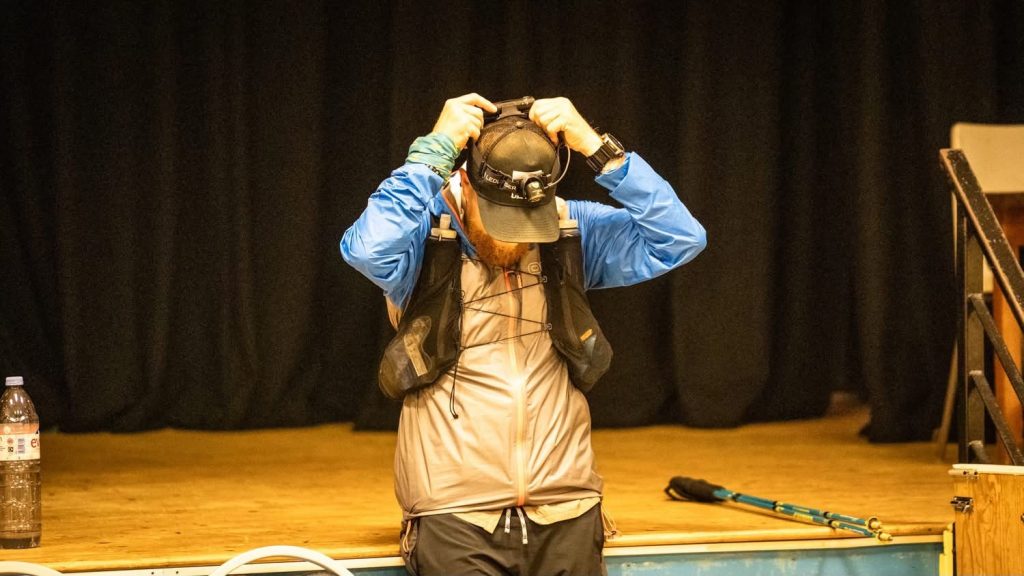
Lessons Learnt:
- Always test your primary and secondary headlamps on night runs during training. Use them over rugged terrain to check how shadows play tricks on your vision.
- Pack a small third as backup. Or at least a spare power pack. In The Race Across Scotland in 2024, during the second night, my primary died (I forgot to charge through the day), and the battery on my second was inadequate for the full duration of the night. The third, whilst only a small, cheap hand torch, saved my race.
- Choose comfort. In the wet night of an ultra, damp straps on a cold head makes smaller annoyances feel huge.
Manage Fatigue, Sleepiness Will Hit You
During the Beacons Way 100 Mile this year, somewhere past the 60-mile mark (roughly 100 km in), at around 2 a.m., I hit the “graveyard shift” hard. The mind drifted. I talked to myself. My legs felt heavy. In Ultra Scotland, again, this year, similar, I was running alone in the pitch black, and every lull felt magnified, and every mile felt like 10.
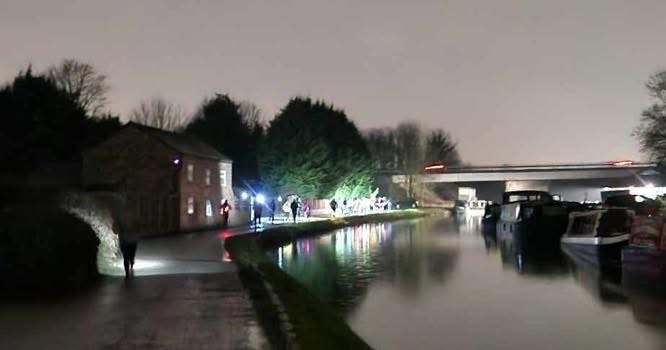
Lessons Learnt:
- Timing my caffeine intake. A well-timed coffee 70 miles in at Ultra Scotland, but not before (or I’d crash earlier). And don’t overdo the caffeine, or you will risk becoming jittery and the crash will hit harder.
- Keeping moving forward. Short power hikes over difficult terrain were better than trying to force an impossible run. But keeping moving, however slow, was essential to fight of the tiredness.
- Mental resets. Listening to some music will help most people. I like to talk out loud and give myself a running commentary on my surroundings and sounds. It might sound odd to some, but it works for me and doing this keeps me alert and keeps my brain active.
Nutrition and Staying Warm Are Critical
Night chills sneak up on you. In the Ultra Scotland race this year, the cold crept in through the early hours of the morning, I thought I would keep warm with the constant motion, but the wet, wind and elevation combo tested me.
In the Beacons Way race, I ended up stopping at checkpoints longer than I needed, not just for water or food, but to put on an extra layer; also, I remember eating hot soup in the early hours, that simple warmth seemed to restore something more than calories.
On nutrition, during Yr Wyddfa 100 miler, I felt sick of gels and carb drinks well before midnight. The real food I brought with me in my drop bags, along with the ginger shot, helped reset my energy.
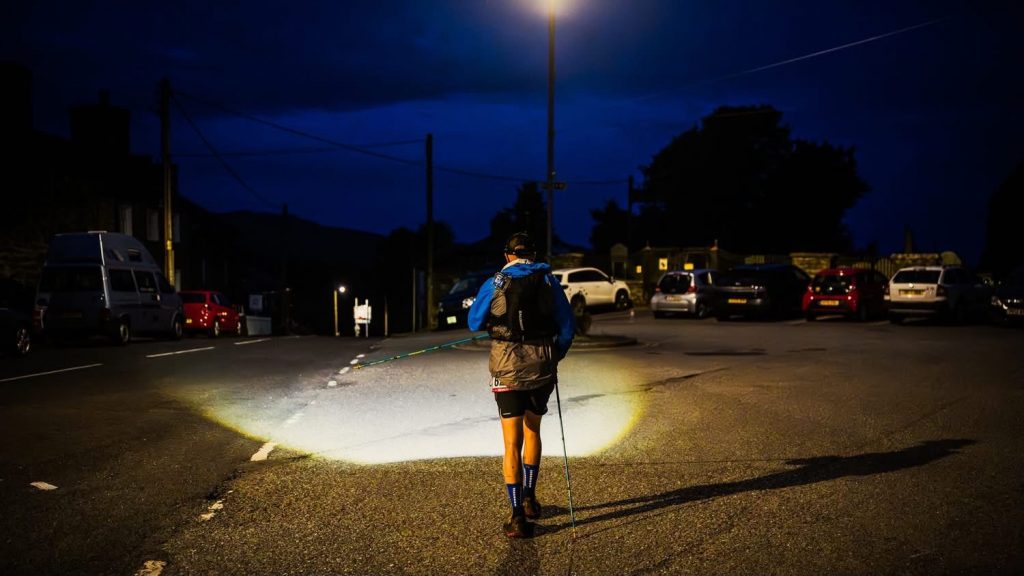
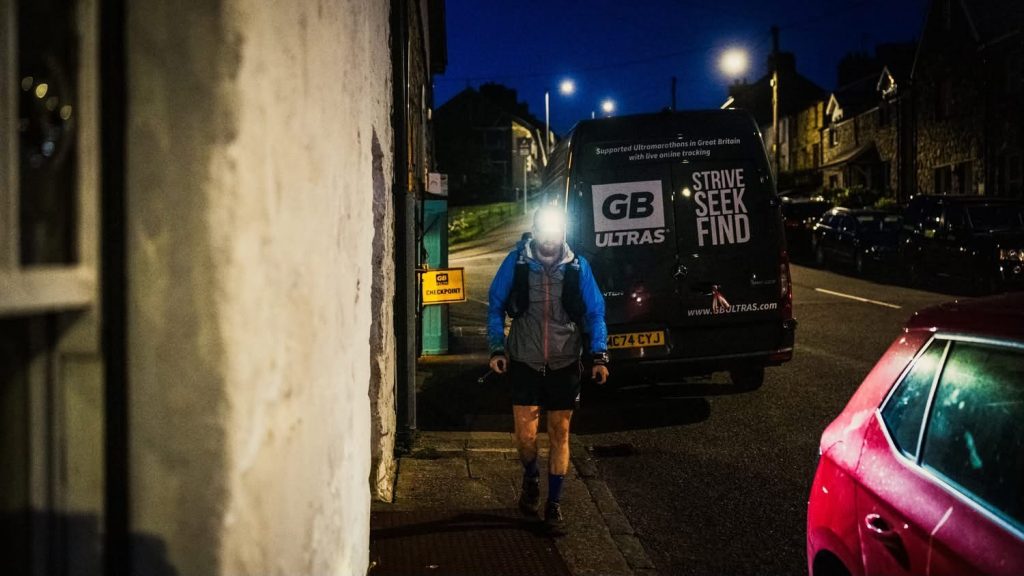
Lessons Learnt:
- The extra layers, the warm hat and gloves are needed and will be used late into the night. Movement alone won’t keep your warm enough when the temperature drops.
- Don’t rely on gels or one type of food or drink. Variety will give you a moral boost deep into the night. Have a little treat waiting in your drop bag or with your support crew.
The Mind Games: Loneliness, Fear and the Strange
During night sections at the Beacons Way, I ran alone for long stretches. The trail markers blur. Sounds, branches, wind, everything exaggerated. In RAS 215, there were stretches in the second and third nights where I was hallucinating or at least seeing movement out of the corner of my eye. Each pause for self-reassurance on navigation or for water or a small break magnified the isolation.
Hallucinating can be interesting, but the strange sightings are something else. 2am on the Chester 100 miler in 2024 I left the comfort of the checkpoint in Frodsham and made my way down a pitch-black ally towards the forest. My jog slowed to a walk as I could hear rustling and movement up ahead of me. I tried to narrow my focus on what I thought was a large badger blocking my path. As I approached, I realised it was a man, naked from the waste down on top of his female friend, having a romantic moment. I simply stepped over them and said, “excuse me guys, apologies”. I clarified what I had witnessed with the next runner I came across. I wasn’t hallucinating.
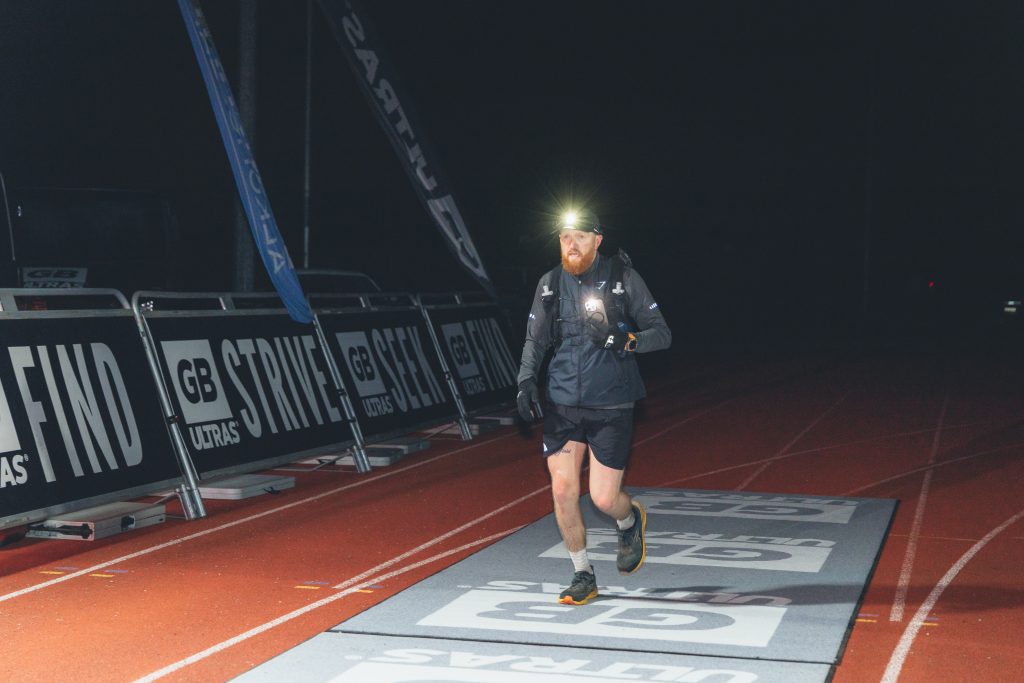
Lessons Learnt:
- Breaking the race into mini targets “next checkpoint / next 3km” rather than thinking “how many hours left.”
- Speaking aloud to myself, I mentioned it earlier, it keeps the brain active and occupied.
- At the Beacons Way, when I caught up with other runners, exchanging a few words (“You okay?” “Do you need anything?”) felt like a lifeline, it felt like we were in it together.
Dawn Brings Redemption
One of my most vivid moments was cresting a ridge in the Race Across Scotland after the first night, just as dawn broke. The faint glow over the horizon lit up the sky, and after many dark miles, that light felt like a total reset. Muscles loosened. Energy returned. The cold retreated. And I was invigorated for the new day ahead.
Similarly, in Snowdonia the final miles in the morning had a different feel after a tough night, trails quieter, views sharper, my thoughts clearer.
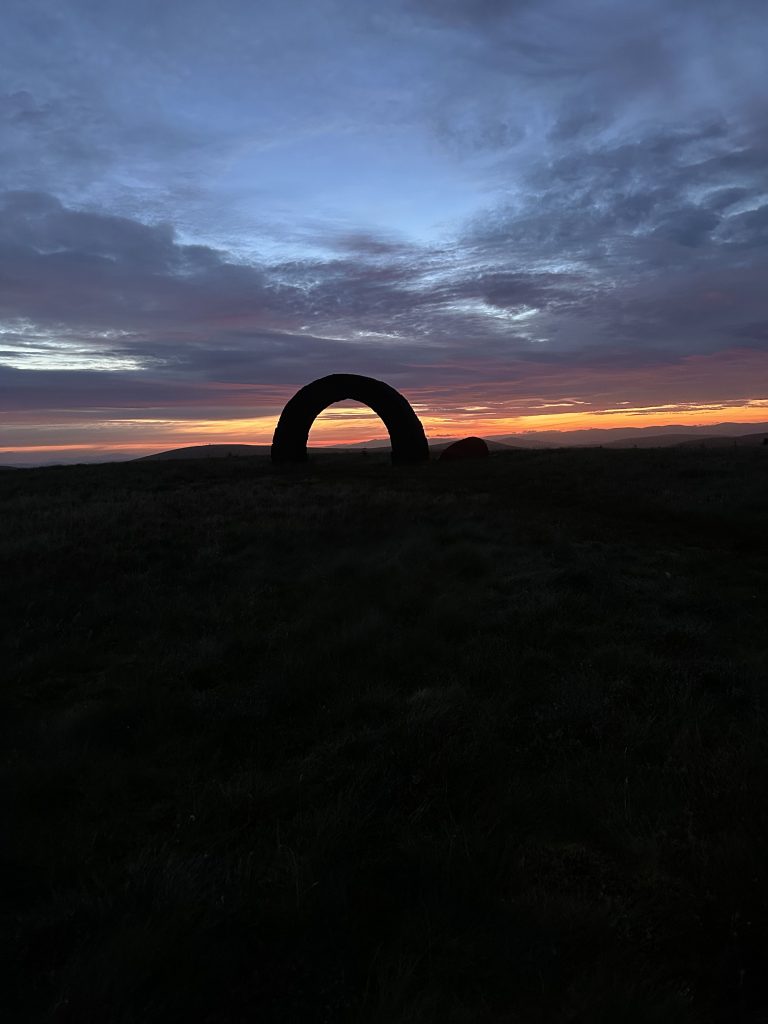
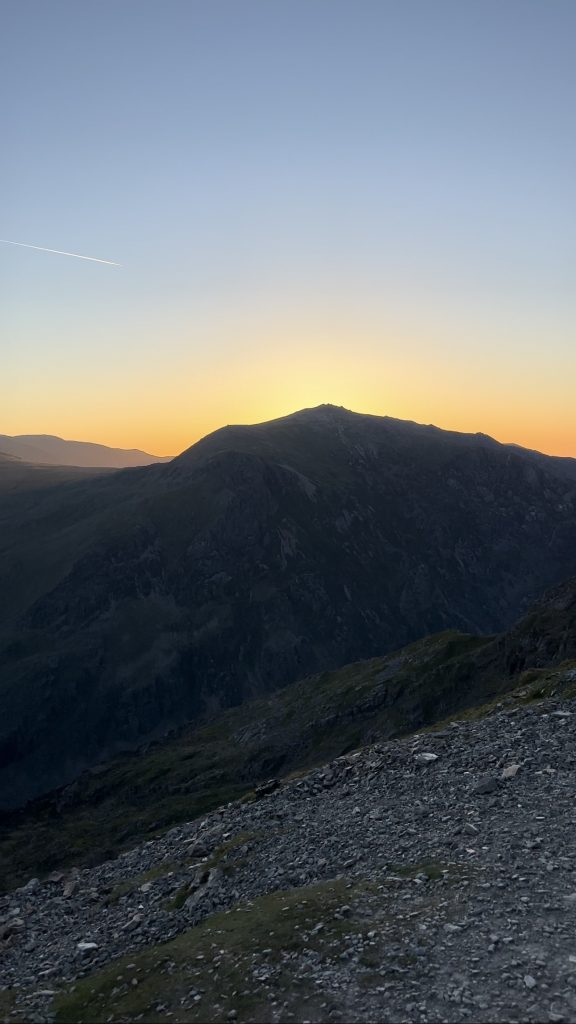
Lessons Learnt:
- No matter how bad things get in the night. Keep moving forward. The new dawn will bring you new energy and desire to keep working towards that finish line.
Closing Thoughts: Embrace the Darkness
If there’s one thing, I’ve learnt from ultras that take you through the night, it’s this. The night doesn’t just test your training or toughness. It reveals parts of you, you didn’t know were there. The patience, stubbornness, creativity and problem solving. You will no doubt find your own little things to help you survive your battle, but these things helped me.
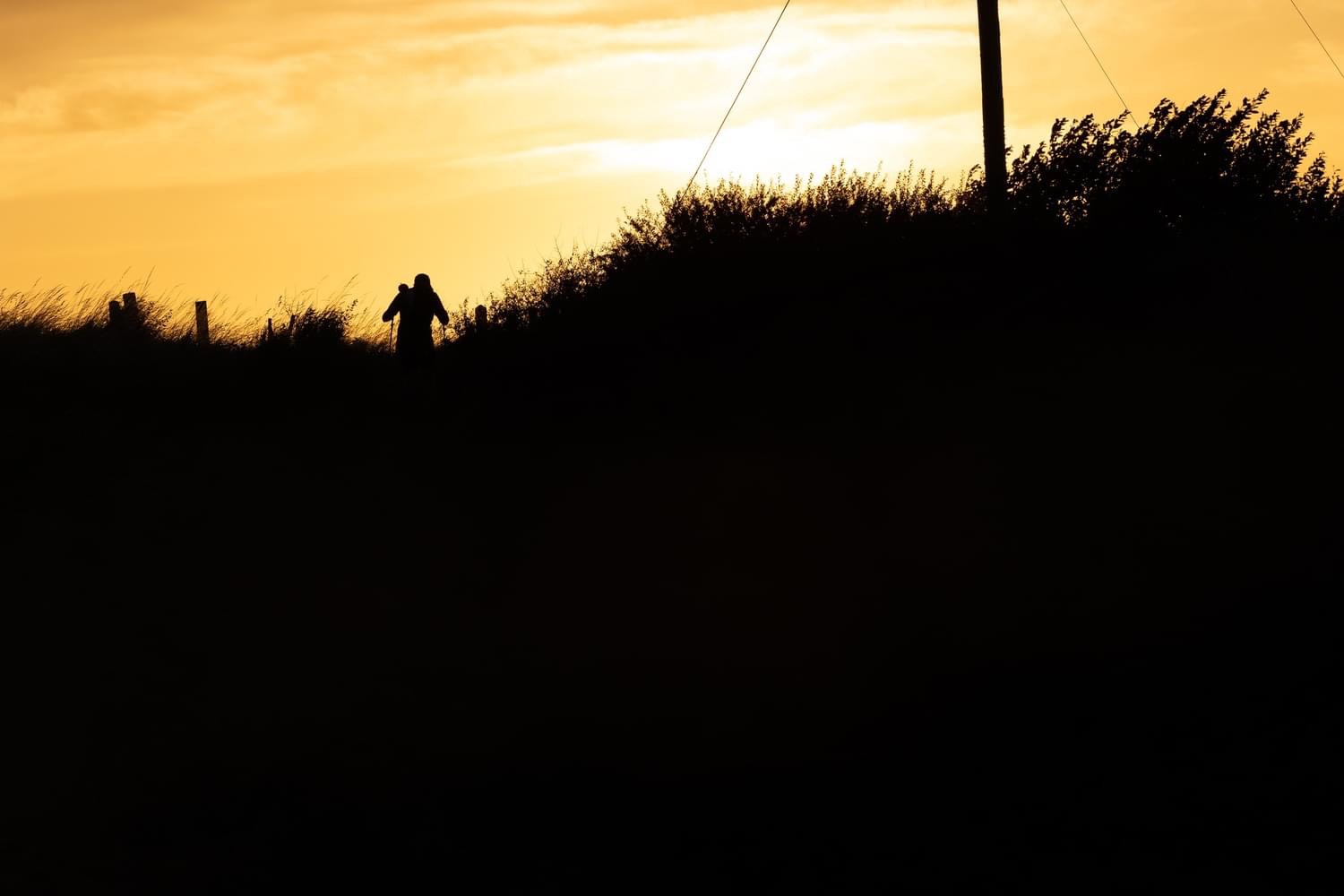
Yes, the dark miles will hurt. They’ll sometimes be scary. They’ll make you question every step. But also, they’ll gift you memories, of fears you’ve overcome, of simple acts like swapping a jacket, of sharing quiet moments with strangers in the dark, witnessing the beauty of the night sky, of seeing the dawn as a reward.
If you’re getting ready for a race where night miles are inevitable, then be sure to train in the dark. Prep your gear. Practice your meals. Face discomfort ahead of time. And when the trail goes quiet, and the sun drops, you’ll not only be ready to survive, you will know how to thrive.


Leave a Reply